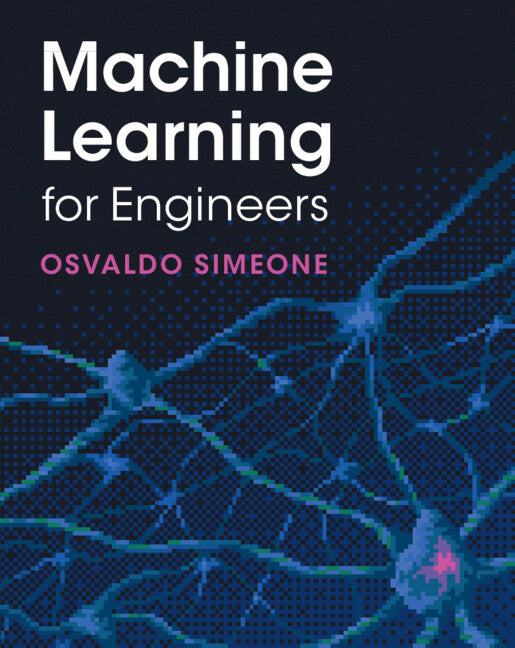Freshly Printed - allow 8 days lead
Couldn't load pickup availability
Machine Learning for Engineers
This self-contained introduction contains all students need to start applying machine learning principles to real-world engineering problems.
Osvaldo Simeone (Author)
9781316512821, Cambridge University Press
Hardback, published 3 November 2022
450 pages
26.1 x 20.9 x 3.8 cm, 1.47 kg
This self-contained introduction to machine learning, designed from the start with engineers in mind, will equip students with everything they need to start applying machine learning principles and algorithms to real-world engineering problems. With a consistent emphasis on the connections between estimation, detection, information theory, and optimization, it includes: an accessible overview of the relationships between machine learning and signal processing, providing a solid foundation for further study; clear explanations of the differences between state-of-the-art techniques and more classical methods, equipping students with all the understanding they need to make informed technique choices; demonstration of the links between information-theoretical concepts and their practical engineering relevance; reproducible examples using Matlab, enabling hands-on student experimentation. Assuming only a basic understanding of probability and linear algebra, and accompanied by lecture slides and solutions for instructors, this is the ideal introduction to machine learning for engineering students of all disciplines.
Part I. Introduction and Background: 1. When and how to use machine learning
2. Background. Part II. Fundamental Concepts and Algorithms: 3. Inference, or model-driven prediction
4. Supervised learning: getting started
5. Optimization for machine learning
6. Supervised learning: beyond least squares
7: Unsupervised learning. Part III. Advanced Tools and Algorithms: 8. Statistical learning theory
9. Exponential family of distributions
10. Variational inference and variational expectation maximization
11. Information-theoretic inference and learning
12. Bayesian learning. Part IV. Beyond Centralized Single-Task Learning: 13. Transfer learning, multi-task learning, continual learning, and meta-learning
14. Federated learning. Part V. Epilogue: 15. Beyond this book.
Subject Areas: Signal processing [UYS], Pattern recognition [UYQP], Machine learning [UYQM], Communications engineering / telecommunications [TJK], Information theory [GPF]


